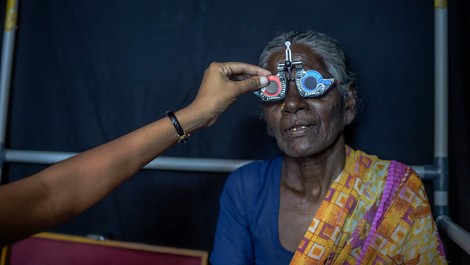Your podcast discovery platform
Curious minds select the most fascinating podcasts from around the world. Discover hand-piqd audio recommendations on your favorite topics.

piqer for: Global finds Doing Good
Michaela Haas, PhD, is the award-winning author of four non-fiction books, most recently Bouncing Forward: The Art and Science of Cultivating Resilience (Simon&Schuster). She is a member of the Solutions Journalism Network and writes a weekly solutions column for the German Süddeutsche Zeitung Magazin. Her articles have been published on CBS, the Washington Post, the Huffington Post, Daily Beast, and many other reputable media.
Improving A Billion Lives With A Truly Simply Solution
As journalists and readers, we often look for spectacular solutions. We tend to be fascinated by charismatic visionaries and exotic experiments. But more often than not very simple solutions can save millions of lives.
This well-researched New York Times Magazine story shines light on an often overlooked issue: More than 1 billion people around the world need eyeglasses, but don’t have them. Some estimates put that figure closer to 2.5 billion people — from school children in India who drop out of school because they can’t figure out the writings on the whiteboard to truck drivers in Nigeria who strain to detect pedestrians on the road. While not seen as urgent as other world health problems, untreated vision problems cost the global economy $200 billion annually to lost productivity, according to the WHO. And they ruin lives, hopes, and careers.
Doctors, NGOs, and donors are looking to change that with a truly simple solution: Providing eyeglasses.
Our Children`s Vision, for example, hands out free or cheap eyeglasses across Africa. Sightsavers, a British nonprofit, runs eye-exam camps and gives glasses to commercial drivers. The non-profit EYElliance tries to raise money and bring attention to the issue. But the organizers say the problem is not being taken seriously. Since millions of people still perish from preventable or treatable illness, many major donors rather focus on combating killers like AIDS, malaria, and tuberculosis. In 2015, only $37 million was spent on delivering eyeglasses to people in the developing world, less than one percent of resources devoted to global health issues.
The chief executive of Essilor, a French eyeglass company and a partner in the fund-raising campaign, even contacted Bill Gates who has been nearsighted since childhood and wears glasses, but couldn’t convince him to take up the cause. Of course, Gates couldn’t have excelled in school or started Microsoft without eyeglasses.
And you couldn’t read Piqd if you couldn’t see.
